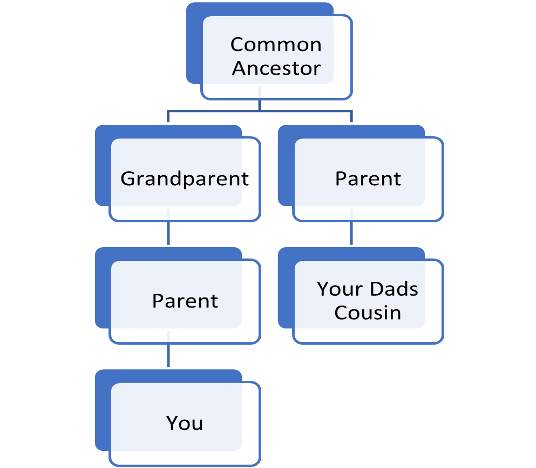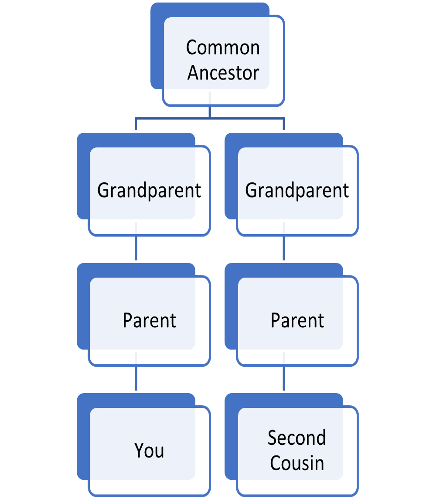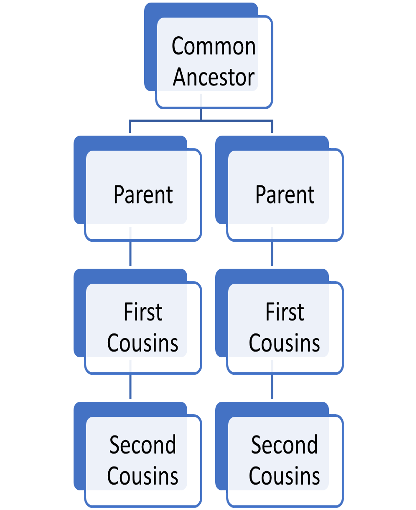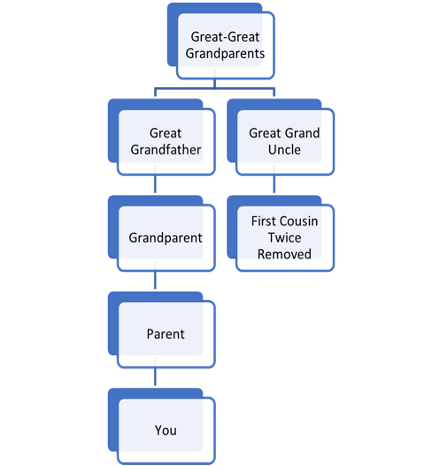What is My Dad's Cousin to Me?
Finding out how you are related to other family members can sometimes be a bit tricky. In this article, we'll cover how you can find out what your relationship to your dad's cousin is.
A big part of researching your family tree is talking to the older generations of your family. This may lead you to going through old family albums. Your parents may be putting names and familial relationships to the faces in those images but it can get confusing as to how some of them are related to you.
Ancestry is Our Top Recommendation
If you love genealogy and family history research, then you must know Ancestry. They are the best way to discover the rich stories of your family!
With over 30 billion (seriously!) records in their database, you can research your family and discover amazing details you may never have known about your ancestors.
With a 14-day free trial, it's very easy to get started and discover your past!
Get Started →You may be told that this or that person is your dad's cousin, but what does that mean to you and your relationship to them?
Who Is Your Dad's First Cousin to You?
So you know who your dad's first cousin is but what is that person's relationship to you? This is a very simple relationship, really, because they are also your first cousin just once removed. However, it's only simple if you've spent any time researching your family tree.
The diagram below illustrates the example of your relationship to your dad's first cousin.

If your father's cousin then has a child, that child child's relationship to your dad would be his first cousin once removed, while the child's relationship to you would be that of second cousin. This can sound very complicated but actually it is not that hard if you know a few things about the basics of family tree research.
Again, we can look at a diagram to show how this relationship works.

Cousins of the Same Generation
Generation is an important aspect when you are trying to determine the connections you have with any cousins. If your cousin is in the same generation as you, meaning that they are the same number of generations separated from your common ancestor, then they are referred to as your cousins.
The number of generations you are separated from that common ancestor dictates the level of cousin you are. If the common ancestors are your grandparents then you are first cousins. If it is your great grandparents then you are second cousins.
This trend continues as you get further away from the shared common ancestors extending to third, fourth, fifth cousins and beyond. As long as you are in the same generation then it is a simple numbered cousin connection.

Cousins from Different Generations
As made evident from your relationship with your father's first cousin, there is a difference in the terminology when you are not in the same generation. Because your father and his cousin are in the same generation then they are first cousins.
Due to the fact that you are one generation further away from your common ancestors than your dad's cousin is, you should then be referred to as cousins removed. The more generations that separate you the higher the removed number.
As an example, you are two more generations separated from your great-great grandparents than your grandfather's first cousin is. This means that your relationship to your grandfather's first cousin would be first cousin twice removed.

Half-Cousins
The cousin relationship terms can become confusing if the children of your common ancestors are only half-siblings. In this instance you only share the one common ancestor with your cousin. So even though you are still in the same generation you would only be referred to as half-cousins to whichever generational degree you are descended from.
Final Thoughts
Cousin relationships can at times be confusing but when you apply some simple logic it isn’t that hard to understand them. If you are in the same generation as your cousin then you do not have to worry about the term "removed."
When it comes to your connection to your father's cousins, however, you will always be considered as "removed" in terms of relationship. The more generations you are separated from any cousin, the further you are considered removed.
Link To or Reference This Page
We spent a lot of time downloading, cleaning, merging, and formatting the data that is shown on the site.
If you found the data or information on this page useful in your research, please use the tool below to properly cite or reference Name Census as the source. We appreciate your support!
-
<a href="https://namecensus.com/blog/what-is-my-dads-cousin-to-me/">What is My Dad's Cousin to Me?</a>
-
"What is My Dad's Cousin to Me?". NameCensus.com. Accessed on April 19, 2024. https://namecensus.com/blog/what-is-my-dads-cousin-to-me/.
-
"What is My Dad's Cousin to Me?". NameCensus.com, https://namecensus.com/blog/what-is-my-dads-cousin-to-me/. Accessed 19 April, 2024
-
What is My Dad's Cousin to Me?. NameCensus.com. Retrieved from https://namecensus.com/blog/what-is-my-dads-cousin-to-me/.
